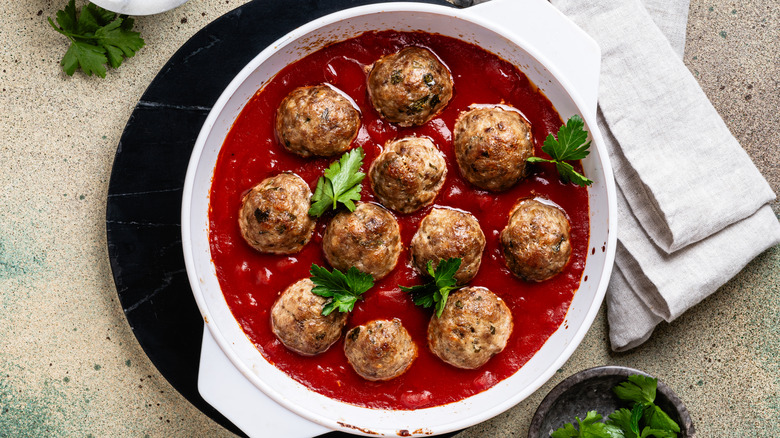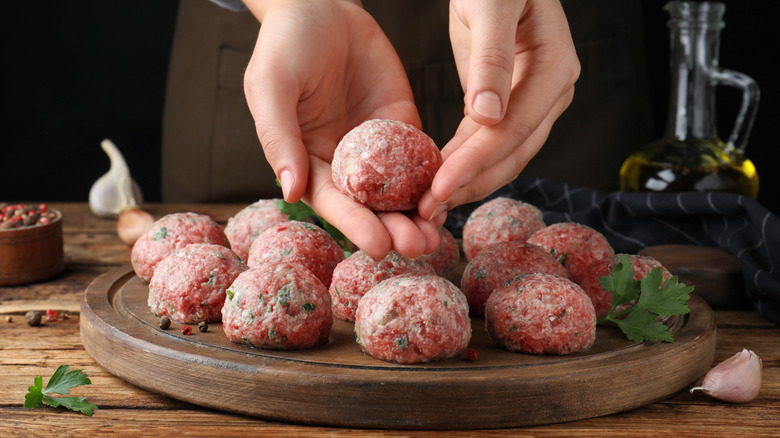Stop Settling For Dry Meatballs, And Start Cooking Them Correctly
There is almost nothing quite as disappointing as a dry and crumbly meatball. Perhaps the single most impactful step you can take to avoid this result is to cook them properly. According to chef Jasper J. Mirabile Jr., owner of Jasper's Restaurant and host of Live! From Jasper's Kitchen Radio, there are three different methods.
The first is oven-roasting. Chef Mirabile recommends a cook time of 18 minutes in a 400 degree Fahrenheit oven. "After they cool, add them to your boiling tomato sauce for [great] flavor [for] not only the sauce but also [for] the meatballs," he suggested. They will be almost cooked through and will only need a couple of minutes to finish in the sauce, absorbing sweet tomato flavor and imparting a meaty savoriness as they simmer.
You can also pan-fry the meatballs. "That is the way my mama used to always prepare her recipe on Sunday mornings," he said. This way, they develop a deeply browned crust, and you can also finish cooking them in your favorite homemade or celebrity-chef approved store-bought pasta sauce.
Chef Mirabile suggests one more technique, and it's a surprising one. He told Food Republic that you can boil them in water. Roll them tight, so they don't fall apart, drop them into boiling water, and let them cook for about 10 minutes. "This is the way my Nana would prepare [hers,] and everyone in the family raved about them," he said. The flavor will be lighter, so something like a low-lift pomodoro is the ideal tomato sauce.
For super moist meatballs, make a panade
The fat content of the meat, extra ingredients, and technique certainly have an impact on how moist the meatballs are, but for Chef Mirabile, adding liquid to the meatball mixture is key. "Make sure the recipe includes milk, water[,] or beef broth for a very moist meatball," he told Food Republic.
One of the most effective ways to incorporate liquid is by making a panade. When it comes to meatballs, the most traditional version is a mixture of fresh bread or bread crumbs soaked in milk — though a panade can technically be made with other bases and liquids. You can also use water, stock, heavy cream, or half-and-half. Just let the liquid and bread soak until soggy, and then mix it into the meat along with the eggs and other seasonings. Just make sure not to overwork the mixture, as this can also contribute to toughness. A panade is especially important for meatballs that use lean meats. For example, including one helps to prevent turkey meatballs from turning into a dry mess.
As the meatballs cook, the starchy panade paste pushes against protein fibers that want to tighten up. Tightly bound protein fibers equal a dry and tough mouthfeel, but the panade gel locks in moisture and keeps those proteins separate. The result? The most tender meatballs you've ever made!


